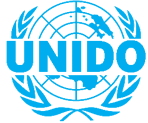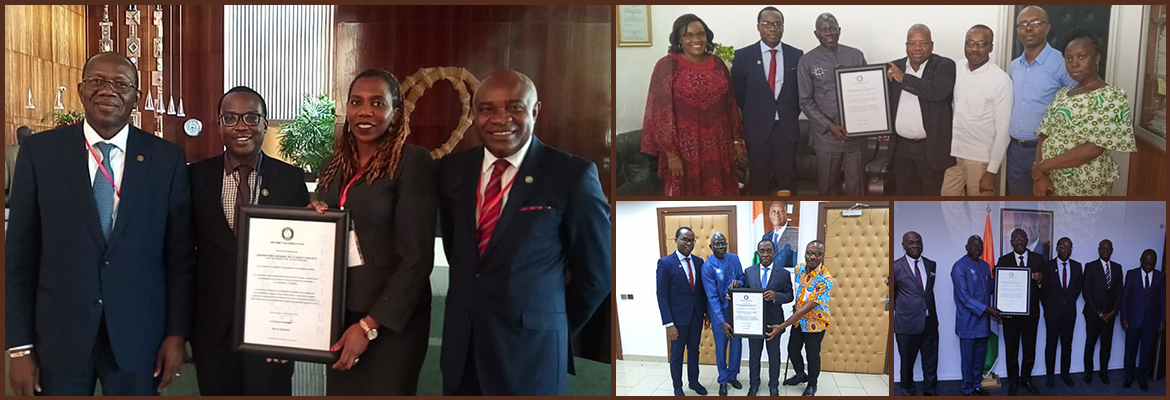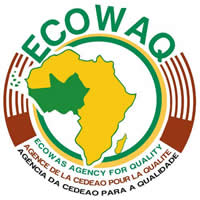





Until recently, accredited laboratories, inspection bodies or certification bodies in West Africa offered their services to economic operators within the region, at prices deemed expensive, obliged to pass on to their customers the high costs of their accreditation issued by foreign agencies. This situation was a hindrance to the development of several sectors of activity, including trade. For example, it must be remembered that to be accepted in several markets, especially for export, products must necessarily be accompanied by testing certificates issued by accredited laboratories.
As part of the implementation of their industrial and trade policies, the UEMOA and ECOWAS Commissions trusted UNIDO, through the quality programs[1] financed by the European Union since 2000, to put an end to this situation by supporting the growth of local accreditation bodies.
Thus, in a perspective of pooling resources and efficiency, one of the solutions brought by UNIDO was the establishment of the West African Accreditation System (SOAC), a multi-economy accreditation body (AB) covering eight Member States in West Africa.
Today, SOAC, an atypical model of accreditation body (less than five multi-economy ABs in the world) is fully functional.
Based in the Republic of Côte d'Ivoire, SOAC has just issued its first accreditation certificates to four laboratories, including three in the agri-food sector (Côte d'Ivoire: BIOTITIALE, VAGNY LAB and The National Laboratory of Public Health (LNSP )) and one from the field of mass calibration (the LEMA of Benin).
This result opens new perspectives, especially the possibility for economic operators to carry out the testing of their products in competent SOAC accredited laboratories, able now to offer accessible costs to their customers.
Indeed, SOAC proximity, as well as the financial implication of the two Commissions and Ivorian Government to its operating costs, enables laboratories to benefit from costs 30% to 55% cheaper than those of different foreign ABs present in the region.
For Côte d'Ivoire specifically, SOAC's operation coincides with the entry into force on 1 January 2019 of the Interim Economic Partnership Agreement (EPA) signed with the European Union. The agreement allows a free access for certain food products to the European market, provided that they comply with EU sanitary and phytosanitary standards. SOAC operation is therefore timely. Laboratories involved in the range of products covered by the EPA may require accreditation from SOAC to, in turn, offer their services to the economic operators involved at lower costs. For UEMOA and ECOWAS, it is a concrete positive response to the development of the agri-food products sector, one of the priorities of the region.
Beyond trade, SOAC accreditation is useful for other sectors such as health. The LNSP has been accredited for the testing of iodine in salt. Iodine deficiency is a major global public health problem with about 2 billion patients in 2014 in no less than 130 countries. The most affected social strata are pregnant women and young children with diseases such as goiter, cretinism, low birth weight, endemic mental deficiency and perinatal mortality rate.
Fortunately, West Africa is making encouraging progress in treating this disease. However, one of the weaknesses of the system was the availability of competent laboratories to test the iodine content of the salt sold on the markets. With its SOAC accreditation, the LNSP is helping to fill this gap. In addition, two other laboratories are being supported by the WAQSP (Burkina Faso and Ghana) in order to be accredited. They will thus be, with the LNSP, and the National Laboratory for Analysis and Control (LANAC) of Senegal (also accredited with the support of the WAQSP), the references in the region for the analysis of this key parameter.
"The presence of SOAC under our horizon is a real relief, it is now possible to be accredited in West Africa and at advantageous costs"
Dr. Ganou Leguet. Chief Food Technology Department. IRSAT / DTA, Ouagadougou, Burkina Faso
"SOAC presents a real opportunity to promote quality through accreditation, the advantages of which benefit Malian consumers and economic operators. Indeed, accreditation is a pledge for consumer protection that will now be exposed to products and services certified by Conformity Assessment Bodies (CABs) whose competence will be regularly verified by SOAC. Likewise, economic operators will have affordable certificates issued by SOAC accredited CABs, attestations required on the international markets, which are proof of the conformity of its products”
Mr. Amadou Diop, SOAC National Focal Accreditation Point in Mali, Head of the Accreditation Service at the Malian Agency for Standardization and Promotion of Quality (AMANORM)
“Without the support of the WAEMU-ECOWAS Quality Programmes, funded by EU and executed by UNIDO, the rapid progression of SOAC over the last years would not have been possible.”
Marcel Gbaguidi, Director-General, SOAC
[1] 2001 – 2005: Programme pour la mise en place d’un système d’accréditation, de normalisation et de promotion de la qualité
2007 – 2012 : West Africa Quality Programme (WAQP) - Support to competitiveness and harmonization of TBT and SPS measures
2014- 2018 : West Africa Quality System Programme (WAQSP)
 This program is funded by the European Union with the technical support of UNIDO, the implementing Agency
This program is funded by the European Union with the technical support of UNIDO, the implementing Agency
The views expressed in this publication do not necessarily reflect those of the Commision of the European Union




Copyright - 2019 - ECOWAS AGENCY FOR QUALITY